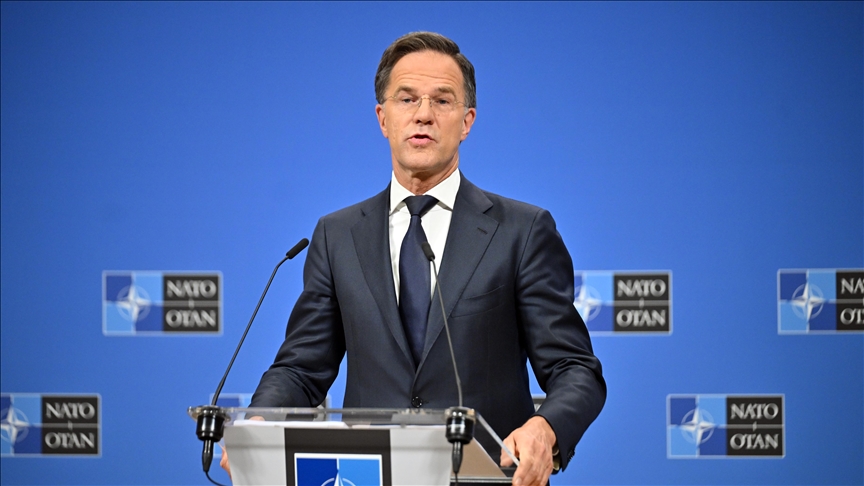NATO chief says 'crucial for US, allies to de-escalate' Mideast after Israel's strikes on Iran
Attacks on Iran early Friday were 'unilateral action by Israel,' says Mark Rutte
 NATO Secretary General Mark Rutte
NATO Secretary General Mark Rutte
BRUSSELS
The chief of the NATO alliance said Friday that it is "crucial" for allies, including the U.S., to work to de-escalate the situation in the Middle East following Israel’s latest attacks on Iran.
Speaking at joint press conference with Swedish Prime Minister Ulf Kristersson, Secretary General Mark Rutte pointed to the "rapidly evolving situation" following Israel’s attack on Iran early Friday.
"This was a unilateral action by Israel. So I think it is crucial for many allies, including the United States, to work, as we speak, to de-escalate. I know they are doing that," he said.
Rutte stressed the urgency for diplomatic efforts to ease tensions in the region.
He also downplayed concerns of a potential nuclear escalation, stating: "No, we are not close." The NATO allies are "very much involved to make sure that the conflict is de-escalated as soon as possible," he said.
According to Iranian media, the Israeli strikes began at around 3 a.m. local time (2330GMT) and targeted military and nuclear facilities, as well as residential areas. The Israeli army said a total of 200 fighter jets took part in the assault, dropping 330 munitions on various targets.
Iran responded by launching over 100 drones toward Israel, with interception efforts underway, said Israeli army spokesperson Brig. Gen. Effie Defrin.
Defrin also confirmed the assassination of several senior Iranian officials in the strikes, including Chief of Staff Mohammad Bagheri, Islamic Revolutionary Guard Corps (IRGC) chief Hossein Salami, and senior commander Gholam Ali Rashid.
Both countries have been bracing for potential full-scale conflict, with reports that Iran is preparing counterattacks involving ballistic missiles aimed at Israeli territory.
Sweden to raise NATO spending to 5%
Kristersson also announced that Sweden will increase its NATO defense spending to 5% of its GDP, adding that at least 3.5% will be directed toward core defense capabilities. He called the move a "historic investment" to boost Sweden's ability to respond to any future Russian aggression and to support Ukraine's right to self-defense.
The premier also called for de-escalation in the region, warning against further escalation and spreading of conflict.
"We don't need an escalation in a region which is already so heated in so many ways, for the regional reasons, but also for the risk for spreading problems around the world," he said.
He also reiterated Sweden's strong support for Ukraine's "right to self-defense against Russia's aggression," adding that strengthening NATO will help keep both the Euro-Atlantic area and Ukraine more secure.
Anadolu Agency website contains only a portion of the news stories offered to subscribers in the AA News Broadcasting System (HAS), and in summarized form. Please contact us for subscription options.







